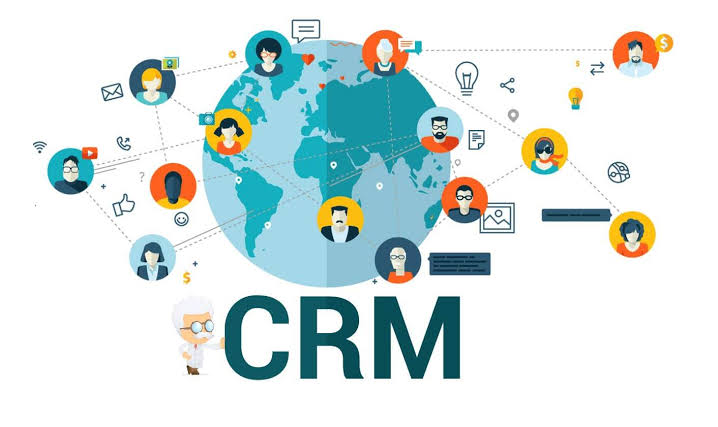The Nigerian business market is becoming more competitive by the day and the last thing you want is to lose your customers. Poor customer management can lead to this and to avoid such events you need to learn how to implement a CRM system in your business.
Managing customer relationships effectively is crucial for success. A Customer Relationship Management (CRM) system can be a powerful tool to help Nigerian businesses streamline their operations, enhance customer satisfaction, and drive growth.
This blog post will provide a comprehensive guide on how to implement a CRM system in your Nigerian business. We’ll cover everything from selecting the right CRM software to customizing it to your specific needs and training your team on its usage.
Key Takeaways
Understanding the Benefits of a CRM System
CRM, or Customer Relationship Management, is a software platform designed to help businesses manage interactions with current and potential customers. It’s a centralized hub for storing and organizing customer data, enabling you to foster stronger relationships and improve business outcomes.
A CRM system collects and organizes customer data, including contact information, interactions, purchases, service requests, assets, and quotes/proposals. This data helps you understand customer interactions at every touchpoint. By analyzing this information, you can create detailed customer profiles and build strong relationships.
Customer data can also be used for incentive compensation modeling, sales forecasting, territory segmentation, campaign design, product innovation, and other sales, marketing, and customer service activities. CRM tools help streamline the customer engagement process, close more deals, build customer loyalty, and increase sales and profits
Key benefits of a CRM system
- Enhanced Customer Relationships: A CRM helps you understand your customers better by storing and organizing their information. This allows for personalized interactions and improved customer satisfaction.
- Improved Sales Efficiency: By tracking sales pipelines, automating tasks, and providing insights into customer behavior, a CRM can streamline your sales processes and increase productivity.
- Enhanced Data Management: A CRM centralizes customer data, making it easier to access and analyze. This can help you identify trends, make data-driven decisions, and improve your marketing strategies.
- Better Marketing Targeting: With a CRM, you can segment your customers based on various criteria and tailor your marketing campaigns to their needs and interests.
- Streamlined Customer Service: A CRM can help you track customer inquiries, manage support tickets, and provide consistent and efficient customer service.
Overall, a CRM system is a valuable tool for businesses of all sizes that want to improve customer relationships, boost sales, and drive growth.
Related article: How to use QuickBooks for your small business
10 Tips on How to Implement a CRM system in your Nigerian business

When implementing a CRM solution, it’s crucial to clearly define the specific benefits you expect to achieve. Many projects fail due to a lack of clarity.
Before you implement a CRM system in your business, consider the following questions:
- Do you want to increase average revenue per sale or improve sales forecasting accuracy?
- Are you aiming to enhance customer loyalty, retention rates, or service response times?
- Do you need to increase sales leads, lower customer acquisition costs, or improve sales close rates?
Now here are 10 tips for help you implement a CRM system in your business successfully and effectively:
- Establish measurable business goals.
- Align your business goals and IT department.
- Get executive support and sponsorship before the implementation project begins.
- Let business goals drive functionality.
- Minimize customizations by leveraging native functionality.
- Use trained, experienced consultants for the implementation.
- Actively involve CRM users.
- Invest in CRM user training.
- Use a phased rollout schedule.
- Measure, monitor, and track.
Top 10 CRM software in Nigeria for businesses
Here are top 10 CRM software in Nigeria for your business management:
- HubSpot
- Zoho Corporation
- Freshsales
- Microsoft Dynamics
- 365Salesforce
- Pipedrive
- NetHunt CRM
- Adobe CRM
- Bitrix24
- Freshdesk
Conclusion
CRM software has emerged as an indispensable tool for organizations seeking to enhance customer relationships, improve operational efficiency, and drive growth. By centralizing customer information, automating processes, and providing valuable insights, CRM solutions empower businesses to deliver exceptional customer experiences and gain a competitive edge.
As Nigerian businesses continues to embrace technological advancements, the adoption of CRM software is expected to grow further. By investing in a suitable CRM system, Nigerian businesses can unlock their full potential and thrive in the dynamic marketplace.
FAQS
What is a CRM system?
A CRM (Customer Relationship Management) system is a software application designed to manage customer interactions and data throughout the customer lifecycle.
How do I choose the right CRM system for my business?
Consider factors such as your business size, industry, budget, and specific requirements when selecting a CRM system. Research different options, evaluate features, and demo software to find the best fit.


